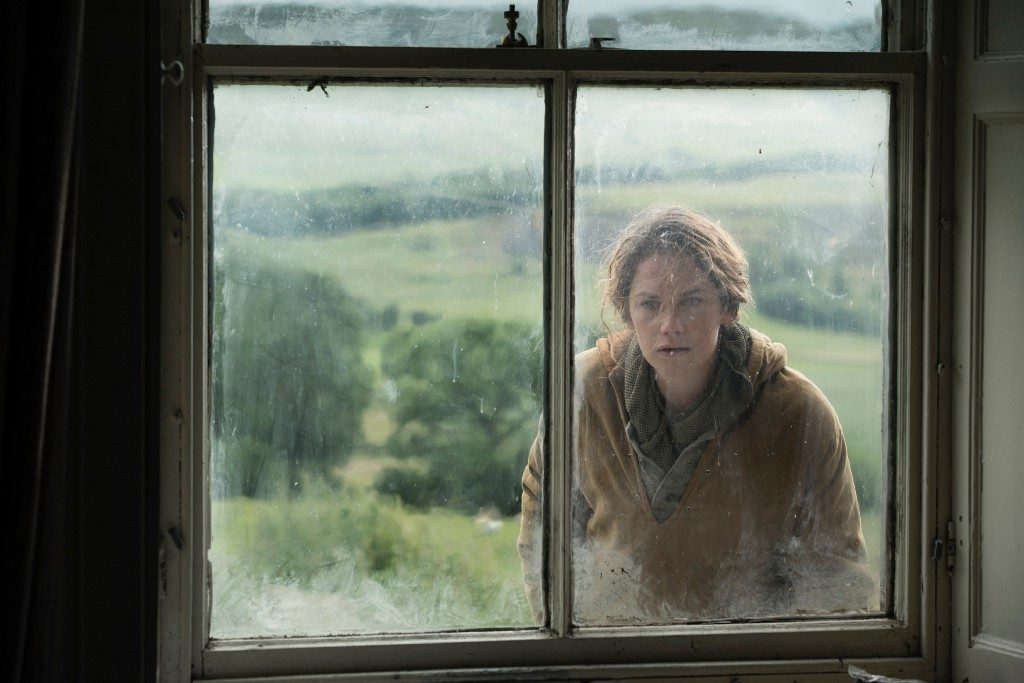Clio Barnard is a director whose films have won her The Douglas Hickox Award at the British Independent Film Awards (BIFAs), Best Screenplay at the Evening Standard British Film Awards, and Best British Newcomer at the BFI London Film Festival.
Her previous works include “The Selfish Giant” and “The Arbor.” Dark River” is Barnard’s third feature film.
“Dark River” will premiere at the 2017 Toronto International Film Festival on September 10.
W&H: Describe the film for us in your own words.
CB: Framed by PJ Harvey singing a folk song setting of a traditional children’s rhyme “My Father Gave me an Acre of Land,” I see “Dark River” as a folk tale about the exploitation of a woman’s body and the land.
W&H: What drew you to this story?
CB: I was inspired by “Trespass,” a novel written by Rose Tremain. I was interested in the relationship between the adult siblings whose dispute over the neglected family farm forces both of them to confront a past they have developed different strategies to suppress.
W&H: What do you want people to think about when they are leaving the theater?
CB: In part it is a film about how damaging it is to be silenced and to bury the past, about how as children we can feel we failed to protect our siblings, and can carry misplaced guilt with us for the rest of our lives.
It is also about acceptance and putting the past to rest, and the difficulty of that process. By the end the siblings are able to reconnect. I hope people will think about the complexity of sibling relationships when there is trauma within the family.
W&H: What was the biggest challenge in making the film?
CB: The subject matter.
W&H: How did you get your film funded? (Is it a studio film, a crowdsourced film, somewhere in between?) Share some insights into how you got the film made.
CB: The film was financed by BFI, Film4, Screen Yorkshire, and the Wellcome Trust.
W&H: What does it mean for you to have your film play at the Toronto International Film Festival?
CB: I’m absolutely thrilled! I’m especially thrilled to be in the prestigious Platform section, which is a very special part of the festival.
W&H: What’s the best you’ve received?
CB: Best advice: Cast well, crew well.
W&H: What advice do you have for other female directors?
CB: People will ask you about your gender in relation to being a director — just ignore them and get on with the job because gender doesn’t make any difference to how you do the job but the world needs your insights. We need your point of view!
W&H: Name your favorite woman-directed film and why.
CB: I love “Winter’s Bone” by Debra Granik. I felt I’d never seen a film about that community before, that specific place, about contemporary rural poverty in the USA. The casting and performances are exceptional.
I love the restricted palette, and the way Granik uses professional and nonprofessional actors — it has an incredible atmosphere and is absolutely gripping.
W&H: There have been significant conversations over the last couple of years about increasing the amount of opportunities for women directors yet the numbers have not increased. Are you optimistic about the possibilities for change? Share any thoughts you might have on this topic.
It was hard to choose just one film to answer the question above, so there is a rich and varied number of female directors, but not enough of them yet. I’m hopeful numbers will grow.
There was a time when it felt like there weren’t many role models but I do think it is changing and it’s important to keep raising awareness and fighting to make that change happen.







